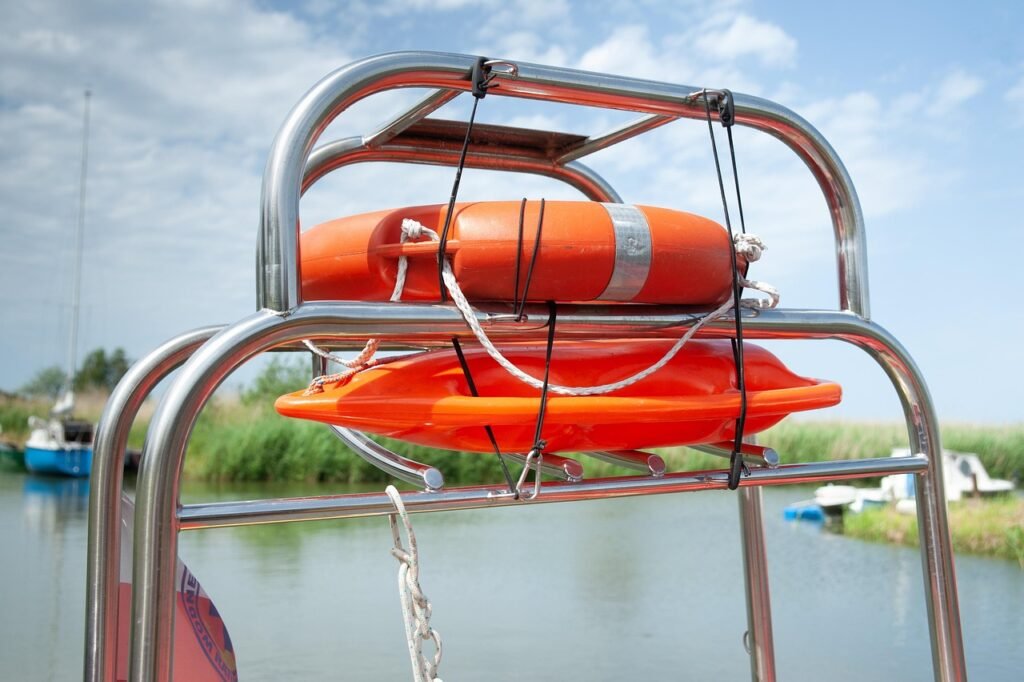
Navigating the world of insurance can feel like traversing a complex maze, particularly when understanding liability coverage. Protecting yourself and your business from potential financial ruin due to unforeseen accidents or negligence is crucial. This guide breaks down the essential types of liability insurance, providing you with the knowledge to make informed decisions and safeguard your assets.
Understanding General Liability Insurance
What is General Liability Insurance?
General liability insurance, often called “commercial general liability” (CGL), is a cornerstone of business protection. It safeguards your business from financial losses resulting from bodily injury or property damage to third parties caused by your business operations, products, or on your business premises.
- Coverage Elements:
Bodily Injury: Covers medical expenses, lost wages, and legal fees if someone is injured on your property or by your business activities.
Property Damage: Protects against costs to repair or replace property damaged by your business or employees.
Personal and Advertising Injury: Covers claims of libel, slander, copyright infringement in your advertisements, and other related offenses.
Medical Payments: Pays for immediate medical expenses for injuries sustained on your premises, regardless of fault.
* Defense Costs: Covers legal fees and court costs associated with defending covered claims, even if the claim is baseless.
Practical Examples of General Liability Claims
- Slip and Fall: A customer slips and falls on a wet floor in your store and sustains injuries. General liability insurance would cover their medical bills and potential legal costs if they sue.
- Property Damage: An employee accidentally damages a client’s property while performing a service. The policy would cover the cost to repair or replace the damaged items.
- Advertising Injury: Your company is accused of using a competitor’s logo without permission in an advertisement. General liability insurance can help cover legal defense costs.
Why General Liability Insurance is Essential
- Financial Protection: Avoid significant financial loss from lawsuits and settlements.
- Peace of Mind: Operate your business knowing you’re protected from common risks.
- Compliance: Many contracts and leases require businesses to carry general liability insurance.
Professional Liability Insurance (Errors & Omissions)
Who Needs Professional Liability Insurance?
Professional liability insurance, also known as Errors & Omissions (E&O) insurance, is essential for professionals who provide advice, services, or designs to clients. This includes:
- Doctors, lawyers, and accountants.
- Engineers, architects, and consultants.
- Real estate agents and insurance brokers.
- Technology companies and software developers.
What Does Professional Liability Cover?
This type of insurance protects you against claims of negligence, errors, or omissions in the professional services you provide. It typically covers:
- Legal defense costs: Including attorney fees, court costs, and expert witness fees.
- Settlements and judgments: Covers the costs of resolving a claim, including settlements or court-ordered judgments.
- Damages: Pays for financial losses suffered by your client as a result of your error or omission.
Example Scenario
Imagine you are an architect, and you designed a building with a structural flaw that later caused significant damage. Your client sues you for negligence. Professional liability insurance would cover your legal defense costs and any resulting settlement or judgment.
Key Benefits of E&O Insurance
- Protects Your Reputation: Helps you manage and mitigate the potential damage to your professional reputation caused by a claim.
- Covers Past Work: Many policies offer retroactive coverage, protecting you from claims arising from work you completed in the past.
- Essential for Business Growth: Enables you to take on larger projects and clients with confidence.
Commercial Auto Liability Insurance
Who Needs Commercial Auto Insurance?
If your business uses vehicles, whether they are company-owned, leased, or even personally-owned vehicles used for business purposes, you need commercial auto liability insurance.
What Does it Cover?
Commercial auto liability insurance protects your business from financial losses if you or an employee causes an accident while driving for business purposes. It typically covers:
- Bodily Injury: Covers medical expenses, lost wages, and other damages for people injured in an accident caused by you or your employees.
- Property Damage: Pays for repairs or replacement of vehicles or other property damaged in an accident.
- Legal Defense: Covers legal fees and court costs if you are sued as a result of an accident.
Practical Example
An employee driving a company delivery van runs a red light and hits another vehicle, causing injuries and property damage. Commercial auto liability insurance will cover the costs associated with the accident, up to the policy limits.
Importance of Adequate Coverage
- Higher Coverage Limits: Commercial auto policies typically offer higher coverage limits than personal auto policies, which is essential to protect your business assets.
- Specific Business Uses: Covers vehicles used for business purposes, which may not be covered under a personal auto policy.
- Employee Protection: Protects your business if an employee is at fault in an accident while driving for work.
Directors and Officers (D&O) Liability Insurance
Who Needs D&O Insurance?
Directors and Officers (D&O) liability insurance is crucial for protecting the personal assets of corporate directors and officers from lawsuits arising from their management decisions.
What Does D&O Insurance Cover?
D&O insurance provides coverage for:
- Breach of Fiduciary Duty: Claims alleging that directors or officers failed to act in the best interests of the company.
- Mismanagement: Lawsuits arising from poor business decisions or financial mismanagement.
- Securities Law Violations: Claims related to inaccurate or misleading financial statements.
- Discrimination and Harassment: Protection against claims of wrongful termination, discrimination, or harassment.
Example Scenario
Shareholders sue the board of directors of a company, alleging that they made poor investment decisions that led to significant financial losses. D&O insurance would cover the directors’ legal defense costs and any resulting settlements or judgments.
Why D&O Insurance is Important
- Attract and Retain Talent: D&O insurance provides peace of mind to directors and officers, making it easier to attract and retain qualified individuals.
- Protects Personal Assets: Shields directors’ and officers’ personal assets from lawsuits.
- Legal Defense: Covers the often substantial costs of defending against lawsuits, even if the claims are ultimately unfounded.
Product Liability Insurance
Who Needs Product Liability Insurance?
If your business designs, manufactures, distributes, or sells products, you need product liability insurance. This insurance protects your business from financial losses if your product causes bodily injury or property damage.
What Does it Cover?
- Design Defects: Claims alleging that a product was poorly designed, making it inherently dangerous.
- Manufacturing Defects: Lawsuits arising from errors during the manufacturing process that made the product unsafe.
- Marketing Defects (Failure to Warn): Protection against claims that your product lacked adequate warnings or instructions.
Example Scenario
A company manufactures a defective toaster that malfunctions and causes a fire in a customer’s kitchen. Product liability insurance would cover the costs associated with the property damage and any injuries caused by the fire.
Importance of Product Liability Coverage
- Broad Protection: Covers a wide range of potential defects and failures.
- Financial Safety Net: Helps manage and mitigate the financial impact of costly lawsuits and settlements.
- Enhances Credibility: Demonstrates to customers that your business stands behind its products.
- Coverage for Recalls: Some policies can include covering the expenses associated with recalling a defective product from the market.
Cyber Liability Insurance
The Growing Need for Cyber Liability Insurance
In today’s digital age, cyber liability insurance is increasingly crucial for businesses of all sizes. Cyberattacks and data breaches are becoming more frequent and sophisticated, leading to significant financial and reputational damage.
What Does Cyber Liability Insurance Cover?
Cyber liability insurance provides coverage for:
- Data Breach Notification Costs: Expenses associated with notifying customers, employees, and regulatory agencies about a data breach.
- Legal Defense and Settlements: Costs related to defending against lawsuits and settling claims arising from a data breach.
- Cyber Extortion: Coverage for ransom payments made in response to a ransomware attack.
- Business Interruption: Compensation for lost income and expenses incurred as a result of a cyberattack that disrupts business operations.
- Data Recovery: Costs to restore or recover data lost or corrupted in a cyberattack.
Example Scenario
A small business experiences a data breach in which customer credit card information is stolen. Cyber liability insurance would cover the costs of notifying affected customers, investigating the breach, and defending against potential lawsuits.
Key Benefits of Cyber Liability Insurance
- Financial Protection: Helps cover the often substantial costs associated with responding to and recovering from a cyberattack.
- Expert Assistance: Provides access to experts who can help you manage a cyberattack and minimize its impact.
- Regulatory Compliance: Helps you comply with data privacy regulations and avoid penalties.
Conclusion
Choosing the right types of liability insurance is critical for safeguarding your business and personal assets from unexpected financial losses. By understanding the different types of coverage available and carefully assessing your specific needs, you can create a comprehensive insurance plan that provides peace of mind and protects your financial future. Consulting with an experienced insurance professional is highly recommended to navigate the complexities and find the best solutions for your unique circumstances.







